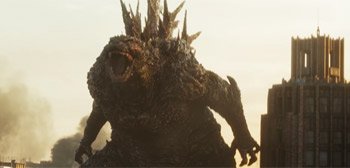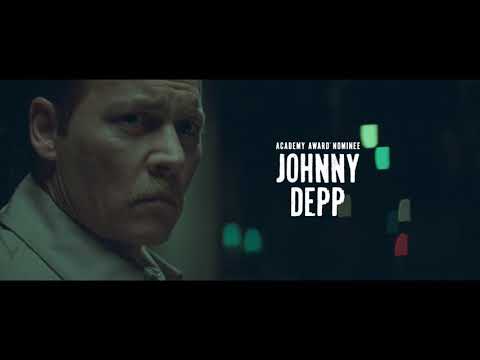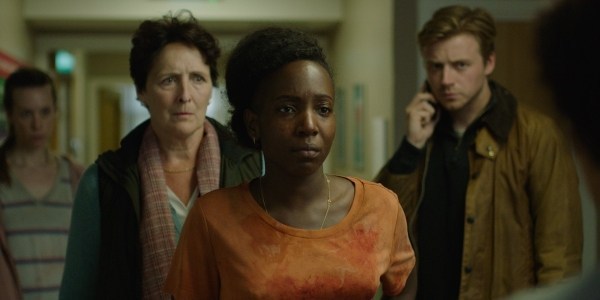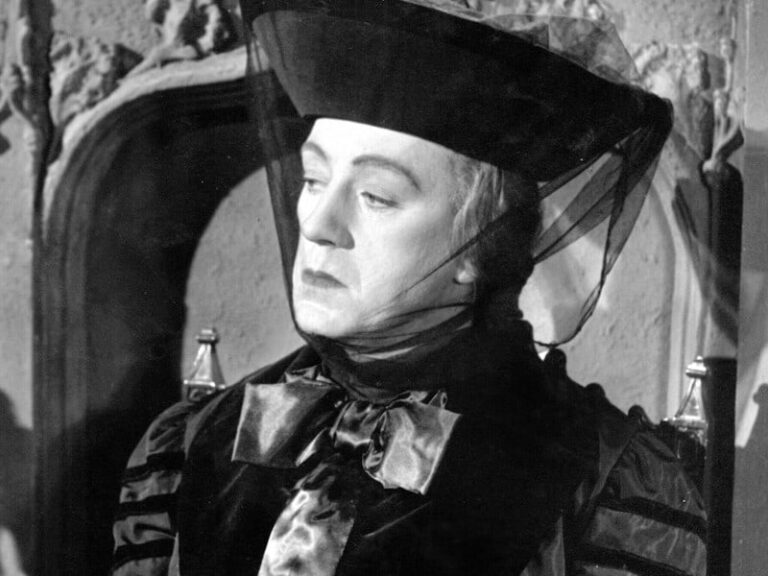Chris Evans and the Measure of Heroes
Welcome to Filmographies, a biweekly column for completists. Every edition brings a new actor’s resumé into focus as we learn about what makes them so compelling.
Chris Evans is a touchstone of American pop culture. Twenty years ago, he emerged in Hollywood during what now feels like a completely different era of popular moviemaking. His formative brushes with fame include teen comedies of the gross-out variety, as well as a smattering of generic rom-coms and more than his fair share of action romps. Most notably, the actor best-known today as Captain America survives two considerably divergent iterations of the superhero overhaul in the film industry. He has seen this subgenre of action-adventure flicks undergo distinctive growing pains before becoming an irrefutable asset to the entertainment industry, catapulting him to definitive stardom.
While there certainly is a broadness to Evans’ appeal, that’s never stopped him from pursuing projects that subvert whatever cookie-cutter impression his chiseled jaw and almost unreal, comic book-y physique tend to attach to him. His forays into more revered forms of cinema have, in fact, been extremely fascinating. Yet, although much of Evans’ auteur-driven work has come out in the last decade or so, this is not to say that the overall value of his filmography can be simply weighed in terms of chronology, that his later stuff is somehow always categorically better than what came before.
A closer study of Evans’ resume reveals a performer’s elaborate journey towards finding a crucial balance in a largely successful mainstream career. In his many onscreen portrayals, Evans demonstrates a gift for considered and nuanced acting, ranging from pure entertainment to heartening emotional intelligence.
The number of contrasts in Evans’ oeuvre can be startling. To know that he can front something as esteemed as Rian Johnson’s whodunnit Knives Out in 2019 puts an early, uh, “classic” like Joel Gallen’s Not Another Teen Movie into sobering perspective. It’s especially fun to look back now and observe how the unadulterated silliness of that movie and other early Evans endeavors exercises a crucial comedic muscle, so much so that a sense of playfulness is basically synonymous with Evans’ first projects.
Released in 2001, Not Another Teen Movie parodies the most overused conventions found in teen movies that overtook public consciousness in the 1980s and ‘90s. Its farce is based primarily on scatological humor and hits pretty low, but it sports a cast that gamely takes on that challenge in commendable stride nonetheless. For Evans’ part, he succeeds in stretching his insufferable popular jock stereotype to its limits (and will apparently never live down a particular gag involving sticking a banana up his butt). He employs an array of outrageous expressions to sell the most ridiculous gags of his pompous character. However, Not Another Teen Movie merely points out unrealistic genre codes and expectations, opting out of supplying effective commentary on how similar movies could avoid such egregious tropes. Therefore, its reactionary schtick — and the crucial, practically self-effacing quality to Evans’ performance — is only entertaining to a point.
Not Another Teen Movie is better appraised against the more straightforward, genuine teen stories in Evans’ filmography, such as his very first television series, Opposite Sex, and Brian Robbins’ The Breakfast Club-adjacent heist film The Perfect Score. Hell, I’ll even throw in the old educational film about biodiversity that he’s in for good measure because these seemingly less adventurous jobs prove more competent in telling resonant stories. Among them, The Perfect Score stands out the most, wherein Evans is given room to convey thoughtfulness to some degree. He depicts a character prepared to disrupt the fraught academic status quo of standardized testing and does a great job keeping his displays of youthful brashness keenly measured.
Evans delivers such a lovely performance in The Perfect Score that I wish the film didn’t, unfortunately, lack the necessary depth for it to live up to its John Hughes blueprint. Still, it appreciably acts as a notable springboard for other convivial films in the actor’s repertoire, showcasing Evans’ prescient knack for adopting a range of comedic styles. In both The Nanny Diaries and What’s Your Number? he sells traditional ideals of masculinity with a softness that makes him an appealing rom-com lead. He fosters infectiously palpable chemistry with his costars; his charm feels innate and his earnestness, naturalistic.
Furthermore, Evans evidently remains constantly open to countering genre stereotypes with gusto. This is evidenced in Playing It Cool and his minor but noteworthy part in Scott Pilgrim vs. the World. The premise of the former recalls the less savory parts of Not Another Teen Movie. Its critique of storytelling clichés fails to acknowledge how it benefits from the more positive aspects of narrative familiarity. That said, the latter serves as the best of Evans’ more satirical experiments.
Scott Pilgrim sees Evans playing Lucas Lee, one of seven evil exes competing for the affection of the film’s central female lead. Armed with his skateboard, comically arched eyebrows, and a weird husky vocal affectation, Evans delves into the caricatured mindset of a cocky action star with uproarious results. The superficial Lee reaps the benefits of an entourage of directors, producers, and stunt doubles that masks a heinously vapid personality, and Evans takes a no-holds-barred approach to make him as delightfully dumb as possible. Minimal screentime aside, he easily steals the show.
Hilariously, the circumstances of Scott Pilgrim appear to riff off of at least one very real Evans movie, Cellular. This spectacle of truly preposterous proportions centers on a very confused baby-faced Evans, who is unwittingly roped into foiling a kidnapping plot via his trusty Nokia 6600. Cellular is entertaining on the most basal level. It’s ninety-four minutes of the actor frantically driving around while glued to the receiver. That kind of marked simplicity regrettably resurfaces in Evans’ few incursions in the animation medium, as well, if only because projects like Battle for Terra and TMNT don’t anchor audiences in virtually any discernible emotional elements. These movies just promise visual bombast.
In comparison, Evans’ first brushes with live-action superhero movies generally fare better, even if they stay in the lane of plainly fun movies. Tim Story’s Fantastic Four adaptations, Paul McGuigan’s Push, and Sylvain White’s The Losers variously illustrate what makes him so engaging, regardless of whether he’s expressly likable. For instance, Johnny Storm / The Human Torch is essentially characterized as a nuisance in the first Fantastic Four movie, but the sequel, Fantastic 4: Rise of the Silver Surfer rectifies this by providing him with the most memorable material. Johnny gets something akin to a coming-of-age arc. Granted, Rise of the Silver Surfer is chiefly light and fluffy. Still, it does the right thing by banking on Evans’ clear standout casting when he has always been the most charismatic, engaging performer in Fantastic Four from the start.
Meanwhile, Push and The Losers present Evans in polar opposites, constructing solemnity and humor into mutually exclusive experiences for the actor to personify. Evans works magic donning the guise of the brooding, reluctant hero in the former. His character Nick Gant is the epitome of a wry everyman that viewers can effortlessly root for. In that same vein, Evans does excellent work playing good ol’ comic relief, ensuring that Jake Jensen of The Losers goes down as one of his most delightful characters.
Evans’ segue from charming heartthrob to distinguished dramatic thespian happened gradually. Pockets of darkness have peppered his filmography from even the Cellular era and in these projects, Evans can eschew congeniality entirely. Fierce People, London, Street Kings, The Loss of the Teardrop Diamond, and Puncture focus on him in varying states of disarray. To see someone typically shown to be carefree imbue his characters with cruelty, violence, distance, and sheer selfish impulse is surely unnerving. Yet, some of these happen to be Evans’ most exemplary performances.
Evans has an aptitude for the steely. He is especially scary in Fierce People, which rings true as a noteworthy precursor to the personification of white moneyed evil that he would later embody in Knives Out. Evans puts on an eerily normal façade in both films, despite obviously oozing elitism and carrying affluence like a badge of honor. Throughout both Fierce People and Knives Out, he exudes a buzzing, tenacious magnetism and weaponizes vulnerability, friendliness, and empathy to make his brand of danger seem credibly alluring. Villains ought to be more of a mainstay in his brand, for sure.
All the more credible, then, is Evans’ intimidating, impeccably calibrated performance in Danny Boyle’s Sunshine. He portrays the immutable engineer Mace, who is one of a crew of eight sent on a save-the-species space mission to kickstart a dying Sun. To say that he isn’t warm and fuzzy would be a vast understatement. Mace is a practical man who comes across as unfeeling. Already at the beginning of the film, he is deeply despondent due to the isolation of space travel, which takes a toll on his emotional availability. That said, upon rewatch and reexamination, it is evident that Mace doesn’t necessarily lack empathy. He stamps out the complexities of his feelings for the betterment of the mission, but Evans ensures that a hint of expressiveness peeks through.
Any inkling of dramatic mastery in Sunshine is further explored in Bong Joon-ho’s Snowpiercer, a dystopian sci-fi film that goes down as one of Evans’ very best. Once again, he faces a world that’s near extinction, this time taking the form of a perpetual ice age. As it is, rattling around the world in an unending locomotive in hopes of escaping a blistering, deadly winter is far from the ideal, but being relegated to the filth and grime of second-class citizenry rightly creates sociopolitical tensions that are primed to explode. Evans is Curtis, the de facto leader of Snowpiercer‘s oppressed tail section passengers. All tough decisions go through him, but it’s the matter of his personal demons that troubles him the most.
It’s worth noting that Bong’s film appears in Evans’ resume after two definitive Steve Rogers / Captain America appearances, in Captain America: The First Avenger and The Avengers, respectively. This adds a layer of disrupted expectation to Curtis. Now known worldwide as the epitome of a perfected super-soldier conceived to symbolize the very best of Americanness, Evans seems like an obvious choice to depict a noble leader. All that notwithstanding, he unleashes rage, despair, and desperation in Snowpiercer and it is as cathartic as it is refreshing. Anyone familiar with the classic hero narrative understands that Curtis’ sacrifices are expected and functional. Nevertheless, Evans’ unselfconscious portrayal ensures that the character’s selflessness is satisfying, if hard-won.
The discernible traits of amiability and admirability in Evans’ protagonists have been firmly set in stone ever since. At least, bar a couple of questionable archetypes as seen in the aforementioned Playing It Cool and Knives Out, plus The Iceman, popping up as a hitman with a bad wig in a Michael Shannon vehicle. Among the sprinkling of non-superhero films that Evans put out during a lengthy eight-year tenure in the Marvel Cinematic Universe, he explores more mature versions of his dramatic leading men.
Gideon Raff’s The Red Sea Diving Resort is the least impactful of the bunch. Despite the film’s well-meaning message about cross-border and cross-cultural unity, the spy thriller simplifies the politics behind untenable blanket statements. Marc Webb’s Gifted and Evans’ directorial debut, Before We Go, are both much more laudable efforts. Compared to his fantastical outings punching aliens and Nazis (and Nazis drawn to space magic) in the Marvel Cinematic Universe, these indie gems draw from a well of emotional literacy that is frankly Evans’ forte. He gets to be all-out sentimental in both, delving deep into the sheer romance of characters cut from the same virtuous cloth as Steve Rogers. The best part about both Gifted and Before We Go is the calming normalcy that resides at the heart their relationship-driven premise, be it familial or romantic. The world doesn’t have to literally fall to pieces for the strength of earnest sincerity to take precedence.
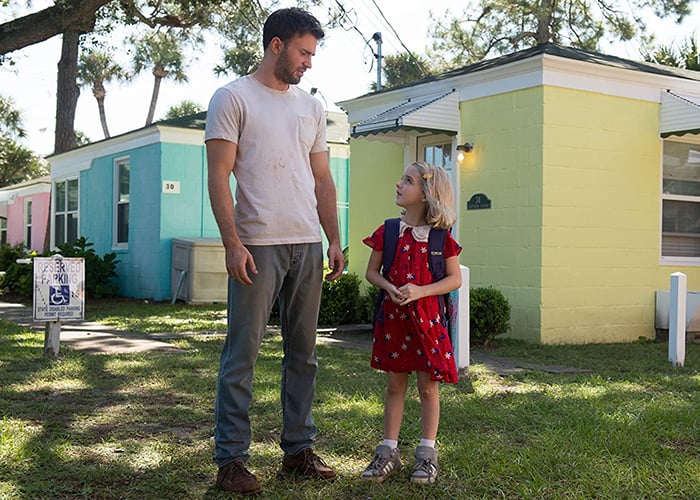
Of course, for Captain America to be the most salient of Evans’ roles isn’t the worst thing by far when his treatment of the character is nothing short of phenomenal. I’ll admit to experiencing some misgivings about Marvel’s initial introduction of the character to its roster, in Captain America: The First Avenger; at the time, there was a sense that such blatant patriotism would alienate international audiences. However, Evans is instrumental to a remarkable change of tune in this regard.
Steve is tough to nail due to the obviousness of his responsibilities. But time and time again, he must tackle issues of morality, questioning the true meaning of his values as a walking, talking American flag. Evans nimbly combines Cap’s dogged, even occasionally foolhardy optimism with delicacy and quiet intelligence and in doing so, creates a multifaceted hero who never needed superpowers to be deemed worthy. Viewers are constantly reminded of the good heart that beats beneath the behemoth of Cap and the acumen that percolates within this supposed unambiguous figurehead of a nation.
Evans continues to interrogate broken social systems in his more recent work. Years of failed pilots ended up working out for him on the big screen, but his return to TV in Apple’s Defending Jacob is more than welcome. The series focuses on murder and mistrust, wherein Evans gets to nestle snugly and effortlessly into the role of fatherhood and all of its unprecedented complications. This easily amounts to one of the most comfortable and confident performances of his career.
In taking stock of the ups and downs of Evans’ professional career, I can’t help but draw from a key scene in Avengers: Endgame — the highest-grossing film of all time (at the time of writing) and one of his most prolific films ever. In this ambitious movie chockful of every hero imaginable, a classic protagonist’s epiphany still occurs strikingly – that “a measure of a person, of a hero, is how well they succeed at being who they are.”
It’s taken a big chunk of time for Evans to truly find his voice, but he has now established himself as one of the most noticeable, compelling, and consistently watchable actors among other top-tier movie stars. He has observably carved out a lasting place for himself in a rapidly changing filmic landscape by enthusiastically leaning into every opportunity, seizing those that allow his multifaceted actorly qualities to breathe.

